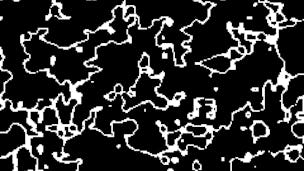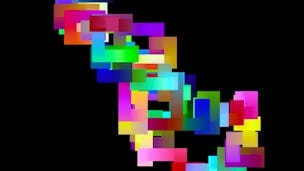Creative Coding for Designers Using Python,marque le dernier volet de la spécialisation complète en trois cours, visant à améliorer considérablement les capacités de programmation des concepteurs, des artistes et des concepteurs visuels grâce à Python. En tant que serveur d'authentification de la série, Creative Coding for Designers Using Python adopte une stratégie d'apprentissage basée sur des projets afin de consolider et d'appliquer les compétences acquises dans les deux premiers cours. Dans ce cours, vous vous concentrerez sur les simulations dynamiques et la génération de contenu procédural, offrant une plongée plus profonde dans l'application de Python dans la conception visuelle et l'art numérique. Designé de données pour les individus qui ont saisi les bases de Python, y compris sa syntaxe, les structures de données, et les principes de programmation orientée objet, ce cours plonge dans des sujets sophistiqués. En exploitant la plateforme Processing avec Python, vous vous engagerez dans des projets interactifs qui transforment les connaissances théoriques en résultats tangibles, comblant ainsi le fossé entre les compétences techniques et la créativité artistique. Creative Coding for Designers Using Python est structuré comme un voyage éducatif qui combine la technologie et l'art, équipant les participants avec les compétences pour explorer les techniques avancées de conception numérique. Ce cours offre les outils et la compréhension conceptuelle nécessaires à l'application innovante de Python dans la création de projets d'art et de design numériques. Il s'agit du troisième et dernier cours d'une série en trois parties, Programmation pour les designers, visant à équiper les designers de compétences essentielles en matière de design computationnel.

Codage créatif pour les designers à l'aide de Python

Codage créatif pour les designers à l'aide de Python
Ce cours fait partie de Spécialisation Programmation pour les concepteurs

Instructeur : Jose Sanchez
Inclus avec
Expérience recommandée
Ce que vous apprendrez
Créer des systèmes de particules en Python pour former des motifs visuels dynamiques
Créer des champs vectoriels dans Processing en utilisant les index et le Perlin Noise remapping pour créer des motifs fluides
Appliquer des algorithmes de génération procédurale pour créer des motifs complexes à base de tuiles avec des textures personnalisables
Compétences que vous acquerrez
- Catégorie : Animation et conception de jeux
- Catégorie : structures de données
- Catégorie : Infographie
- Catégorie : Programmation en Python
- Catégorie : Programmation orientée objet (POO)
- Catégorie : Algorithmes
- Catégorie : Visualisation (infographie)
- Catégorie : Conception créative
- Catégorie : IA générative
- Catégorie : Simulations
- Skills section collapsed. Showing 8 of 10 skills.
Détails à connaître

Ajouter à votre profil LinkedIn
15 devoirs
Découvrez comment les employés des entreprises prestigieuses maîtrisent des compétences recherchées

Élaborez votre expertise du sujet
- Apprenez de nouveaux concepts auprès d'experts du secteur
- Acquérez une compréhension de base d'un sujet ou d'un outil
- Développez des compétences professionnelles avec des projets pratiques
- Obtenez un certificat professionnel partageable

Il y a 5 modules dans ce cours
Notre premier projet présente les systèmes de particules, un concept fondamental en matière de simulation et d'effets visuels qui permet de créer des motifs complexes et dynamiques à partir de règles simples. À travers une série de vidéos, nous aborderons la création de particules, leurs comportements et la manière de les contrôler et de les animer pour produire des effets visuels complexes. Cette semaine pose les bases pour comprendre comment des éléments individuels peuvent fonctionner ensemble pour créer des motifs complexes.
Inclus
13 vidéos7 lectures3 devoirs1 élément d'application1 sujet de discussion
En s'appuyant sur nos connaissances des systèmes de particules, la deuxième semaine explore les champs vectoriels et leur application pour guider le mouvement des particules. Vous apprendrez à créer des champs vectoriels et à les utiliser pour influencer la navigation et le comportement des particules au sein d'un système. Cette semaine renforce notre capacité à simuler des phénomènes naturels et à créer des motifs dynamiques et fluides dans nos conceptions.
Inclus
10 vidéos3 lectures3 devoirs1 élément d'application
Dans notre troisième projet, nous nous intéressons aux simulations d'écosystèmes, une application complexe et fascinante du codage créatif qui modélise les interactions au sein des écosystèmes. Vous apprendrez à simuler différentes entités au sein d'un écosystème et leurs interactions, telles que la prédation et la reproduction. Cette semaine nous incite à réfléchir aux systèmes, à leurs règles et à la manière de les représenter visuellement de manière attrayante.
Inclus
10 vidéos2 lectures3 devoirs1 élément d'application
Le pathfinding est crucial dans de nombreuses applications de conception et de jeu, car il permet aux objets de naviguer dans l'environnement de manière intelligente. Cette semaine, nous nous concentrons sur l'algorithme A-Star (A*), un algorithme de pathfinding populaire connu pour son efficacité et sa précision. Vous apprendrez à mettre en œuvre l'algorithme A* pour permettre aux personnages ou aux objets de trouver le chemin le plus court entre deux points, afin de surmonter les obstacles et d'optimiser les mouvements dans vos projets.
Inclus
10 vidéos2 lectures3 devoirs1 élément d'application
Notre projet final explore l'algorithme d'effondrement de la fonction d'onde, une technique avancée de génération procédurale particulièrement utile dans la conception générative basée sur les tuiles. Vous apprendrez à mettre en œuvre cet algorithme pour créer des motifs et des paysages complexes, offrant ainsi un outil puissant pour la conception architecturale, le développement de jeux et l'art numérique. Cette semaine marque le point culminant de notre exploration, en montrant comment les algorithmes peuvent inspirer la créativité et l'innovation dans le domaine de la conception.
Inclus
11 vidéos3 lectures3 devoirs1 élément d'application
Obtenez un certificat professionnel
Ajoutez ce titre à votre profil LinkedIn, à votre curriculum vitae ou à votre CV. Partagez-le sur les médias sociaux et dans votre évaluation des performances.
Instructeur

Offert par
En savoir plus sur Conception et produit

University of Michigan

University of Michigan
Pour quelles raisons les étudiants sur Coursera nous choisissent-ils pour leur carrière ?

Felipe M.

Jennifer J.

Larry W.

Chaitanya A.

Ouvrez de nouvelles portes avec Coursera Plus
Accès illimité à 10,000+ cours de niveau international, projets pratiques et programmes de certification prêts à l'emploi - tous inclus dans votre abonnement.
Faites progresser votre carrière avec un diplôme en ligne
Obtenez un diplôme auprès d’universités de renommée mondiale - 100 % en ligne
Rejoignez plus de 3 400 entreprises mondiales qui ont choisi Coursera pour les affaires
Améliorez les compétences de vos employés pour exceller dans l’économie numérique
Foire Aux Questions
Pour accéder aux supports de cours, aux devoirs et pour obtenir un certificat, vous devez acheter l'expérience de certificat lorsque vous vous inscrivez à un cours. Vous pouvez essayer un essai gratuit ou demander une aide financière. Le cours peut proposer l'option "Cours complet, pas de certificat". Cette option vous permet de consulter tous les supports de cours, de soumettre les évaluations requises et d'obtenir une note finale. Cela signifie également que vous ne pourrez pas acheter un certificat d'expérience.
Lorsque vous vous inscrivez au cours, vous avez accès à tous les cours de la spécialisation et vous obtenez un certificat lorsque vous terminez le travail. Votre certificat électronique sera ajouté à votre page Réalisations - de là, vous pouvez imprimer votre certificat ou l'ajouter à votre profil LinkedIn.
Oui, pour certains programmes de formation, vous pouvez demander une aide financière ou une bourse si vous n'avez pas les moyens de payer les frais d'inscription. Si une aide financière ou une bourse est disponible pour votre programme de formation, vous trouverez un lien de demande sur la page de description.
Plus de questions
Aide financière disponible,

